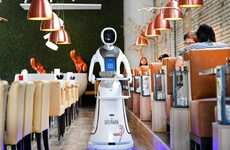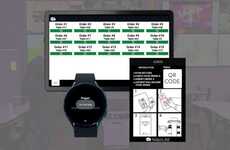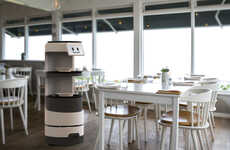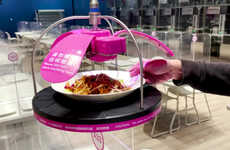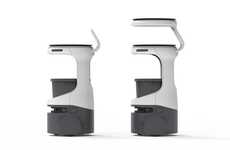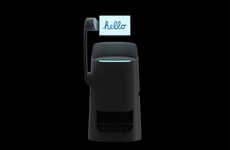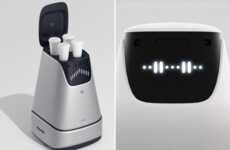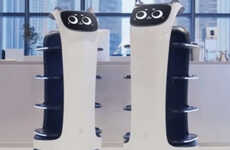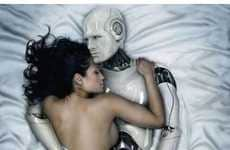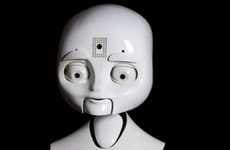
This Radio-Controlled Table Replaces Restaurant Waitstaff
Going Like Sixty — December 13, 2008 — Tech
References: gizmodo
Who needs a head and arms and face and jabbering from a robot? If you just want a mechanical slave, then utility is foremost. This designer serves his guests with a remote-controlled table. This simple robot server makes so much sense to those of us who just hate to interact with anything that has something to say, or might give us the stink-eye if the tip isn't big enough.
Implications - In a technology-dependent society, machines are growing increasingly capable and adopting human skills. These multi-capable machines are appealing to companies who can save money by employing them instead of human hands or drastically reduce the number of employees necessary to complete a given task.
Implications - In a technology-dependent society, machines are growing increasingly capable and adopting human skills. These multi-capable machines are appealing to companies who can save money by employing them instead of human hands or drastically reduce the number of employees necessary to complete a given task.
Trend Themes
1. Robot Servers - The rise of radio-controlled tables and other robot servers presents disruptive innovation opportunities for the restaurant industry.
2. Automation in Hospitality - The use of remote-controlled tables highlights the potential for automation in the hospitality industry, providing new ways to streamline operations.
3. Human-like Machines - The development of machines with human-like capabilities opens doors for innovative applications in various industries, including service-oriented sectors.
Industry Implications
1. Restaurant Industry - Integrating robot servers can revolutionize the way restaurants operate, offering increased efficiency and cost savings.
2. Hospitality Industry - Adopting automation technologies like radio-controlled tables can enhance service offerings and improve guest experience in the hospitality industry.
3. Service-oriented Sectors - The use of human-like machines has the potential to disrupt service-oriented sectors, such as hotels, hospitals, and customer service centers, by providing efficient and personalized interactions.
3.7
Score
Popularity
Activity
Freshness


